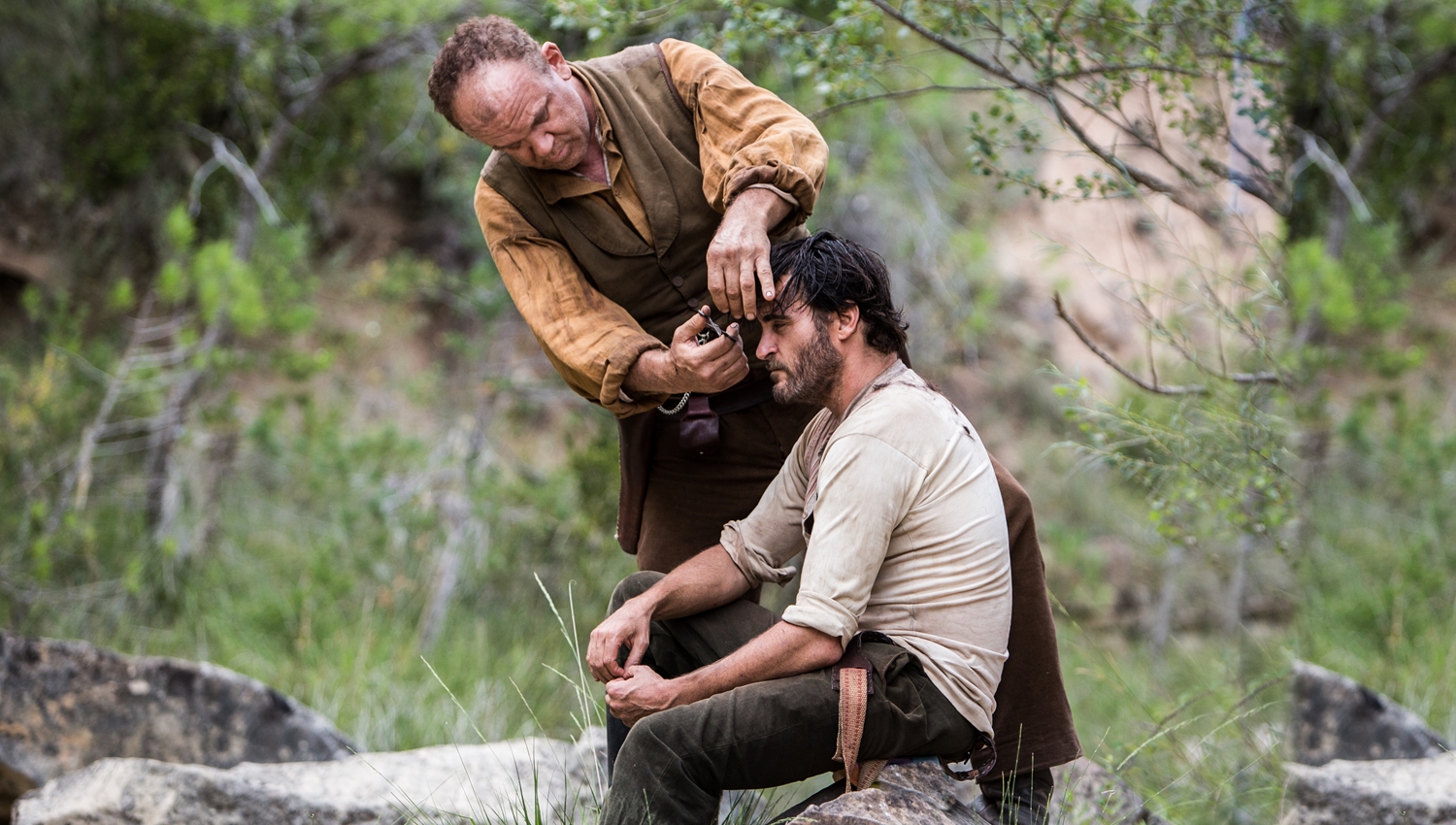
The Sisters Brothers
Dustin Chase
If the goal of French filmmaker Jacques Audiard and producer John C. Reilly was to design a western that feels vintage they succeeded. “The Sisters Brothers” is the best and the worst of the modern-day western. Despite Reilly’s enthusiasm for hiring this European for a very Western story, Audiard, known for his slow-moving dramas like Rust & Bone, might not have been the ideal choice here. “The Sisters Brothers” opens with a tune from a broken piano, followed by a painful Alexandre Desplat score, continuously detracting from the film throughout its running time. ‘Sisters’ is an exploration of the different personalities who settled the wild west against the backdrop of the violent, harsh reality of life on the frontier, but it never culminates into a riveting or even emotional story.
The Sisters Brothers work for the Commodore (Rutger Hauer), a powerful criminal controlling trade and business from his Oregon homestead in 1851. Charlie Sisters (Phoenix) is the mouth of the duo, the violent one who killed his own father as a child. Eli Sisters (Reilly) is the oldest, and the brains of the operation, usually saving Charlie from himself, especially after Charlie’s had too much to drink. Their latest assignment is to join another Commodore henchman John Morris (Gyllenhaal), who is days ahead of the duo, to hunt down a man who has the formula to make gold prospecting easier. Their journey across Oregon and into California changes their worldview as Eli begins to grow weary the life of killing.
Never culminates into a riveting or even emotional story.
Pacing issues aside, you should know the trailer is not a good representation of what you are actually paying to see, the brothers are just not very interesting. In fact, its Gyllenhaal’s character, the mysterious and contemplative John Morris, who I wanted to know more about. Yet he and the charismatic Riz Ahmed (Gyllenhaal’s co-star on “Nightcrawler”) disappear halfway through the story. The structure of “Sisters” is uneven, despite being fairly linear. Audiard’s screenplay adaptation taps into a few notable moments, the most widely discussed is Eli Sisters’ first encounter with a toothbrush and a toilet. Reilly, whose name is being tossed around the best actor conversation, doesn’t give a broad enough performance to be memorable or effective despite the delicate balance of his character.
“The Sisters Brothers” doesn’t have the authenticity or stunning camera work of last year’s “Hostiles”, which didn’t get near as much attention as this film. It’s also not as thrilling and memorable as 3:10 to Yuma (2007), or as clever as In a Valley of Violence (2016), nor is the duality of right and wrong on par with Appaloosa (2008). So, I find it very difficult to review “The Sisters Brothers” in a positive light simply because of its good intentions when none of its individual components or its collective results stand out among the year’s best or even when compared to other westerns of the past decade. In fact, disappointing as it was, “Damsel” is still the better western of 2018.
Final Thought
A lethargic western that fails to meet the standard of recent genre achievements.
